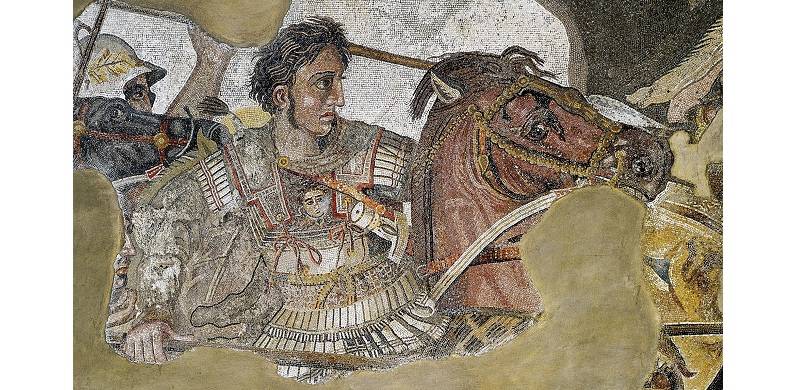
Professor Dr. Cinzia Susanna Bearzot is a professor of Greek History. She works at the Department of Classical Philology, Papyrology and Historical Linguistics at the Faculty of Arts and Philosophy, Università Cattolica di Milano, Italy (Catholic University of Milan, Italy). She teaches and engages with the history of Greek political thought, the history of institutions and law of the Greek polis and ancient historiography. She has published several monographs and above 200 minor essays, and articles.
This interview with her is divided into some major themes.
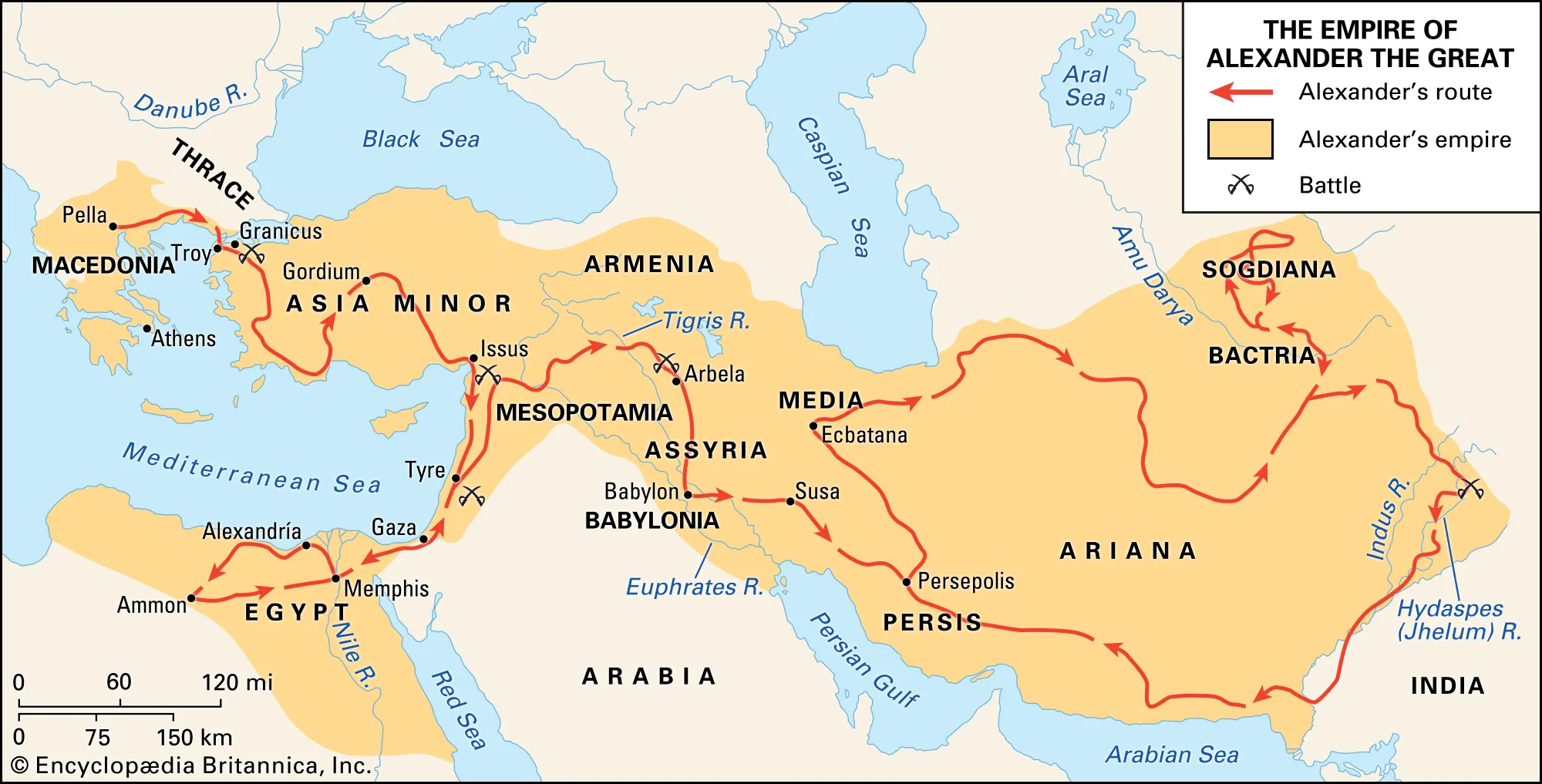
Young Alexander
Zaffer Junejo: How do you see pre-Asian war Alexander?
Cinzia Susanna Bearzot: Alexander was a young prince of great culture, a consequence of the excellent education he had received, and very well prepared militarily: at the age of 18 he had fought with his father on the field of Chaeronea against the Greeks. Although in Macedonia, when a king died, there were several candidates for the succession, he was certainly the designated heir, the son of the 'queen mother', Olympias. Upon Philip's death, he seemed, at first, to follow in his father's footsteps: he had himself appointed strategist of the League of Corinth, the league in which Philip had united the cities and peoples of Greece, and continued the project of the expedition to Asia that Philip had initiated. However, his impulsive character, different from that of his father, manifested itself immediately with the elimination of the aspirants to the throne and the destruction of Thebes, which had rebelled against Macedonian rule.
ZJ: How did the personality traits of his father and mother condition him?
CSB: Philip was certainly responsible for the top-class education Alexander received from Aristotle and his excellent military training. But the most profound traces were left in him by his mother, the Epirus princess Olympias, from whom Alexander inherited his highly emotional personality and dreamy character; it was probably she who convinced him that he was, if not exactly the son of Zeus, at least a predestined one.

ZJ: How did Alexander’s role models Cyrus the Great, Zeus, Dionysus, Heracles, Homer, Achilles and Aristotle shaped his personality?
CSB: I think it was Homer who had the greatest influence on Alexander: Alexander certainly felt like a new Achilles, so much so that as soon as he landed in Asia he went to offer sacrifices on his tomb. But the models of the civilising heroes, Heracles and Dionysus, are also very strong. Zeus, more than a model, was for him a kind of father: it is difficult to say whether Alexander was really convinced that he was the son of Zeus, but he certainly thought it useful to make him believe it. As for the figure of Cyrus, by the 4th century BC he had become the model of the good ruler; Alexander visited his tomb, but I do not think he was the main model for him. Certainly the figure of Aristotle was very important, who provided him with extensive knowledge of Greek culture and the values of Hellenism; he also tried to influence him politically, but not always successfully.
On the way to war with the world
ZJ: There is a popular story about Alexander’s conquests in Asia. Were they meant to take revenge for the Persian invasion in the time of Xerxes?
CSB: In fact, the expedition was actually presented as a revenge of the Persian wars, particularly the second one. There is a reason for this: Philip, who had planned the expedition, sought in it a legitimisation of his role as general of a coalition of Greek states; numerous pro-Macedonian Greek intellectuals invited him to undertake it, convinced that the Greeks would more willingly accept a Philip capable of defeating the ancient Persian enemy. Alexander was certainly on the same page as his father at the time of his departure, but his prospects quickly changed. Philip planned to conquer Anatolia, as far as the Taurus range, but he certainly did not intend to enter inner Asia; Alexander, on the other hand, soon developed a perspective of ecumenical conquest, already evident after the battle of Issus in 333 BC, when he refused to agree with Darius III on the division of the kingdom.
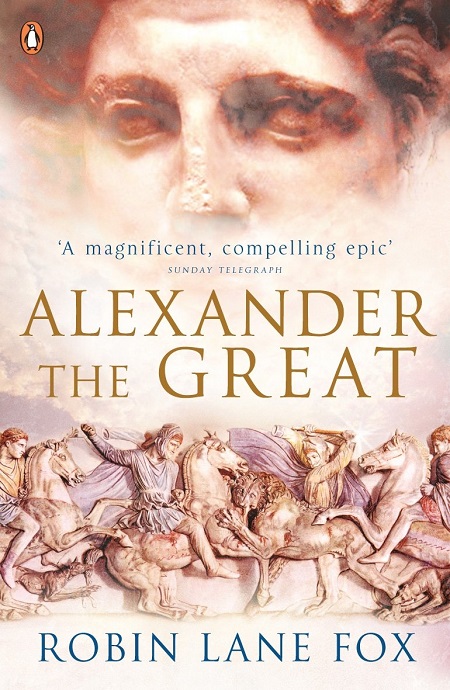
ZJ: Some historians are of the view that he needed the wealth of the Persian empire to support his war machine. What you think his deepest motive might have been?
I do not think this can be considered the real reason for the expedition. As I have said, it came about as a means of legitimising the sovereign as the dominant personality in the Greek world and a recognised hegemon, and it was desired by many Greeks because it could provide land for colonisation, in which poor Greeks could settle. In reality, Alexander sought glory and prestige, not money.
ZJ: Would you comment on Alexander’s route to enter India?
CSB: As I have said, Alexander was a dreamer, thirsting not only for conquest but also for knowledge and glory. It is no coincidence that he set out accompanied by topographers, botanists, zoologists and other scientists: the expedition was also meant to be scientific in nature, and one can see here the influence of Aristotle. His decision to enter India certainly stemmed from his interest in exploring new worlds and extending his control over distant and unknown lands; as is well known, after defeating King Porus he wanted to reach the Ganges, but it was the army, tired of the long years spent away from home, that refused to follow him further.
ZJ: If his route of travel is drawn on paper, then there seems to be connectivity: he crossed passable valleys, went around the bases of mountains and crossed already well known mountain passes. What were his reasons for taking such well known paths?
CSB: In unfamiliar territory, in unaccustomed climatic conditions and with the inevitable supply difficulties, it is understandable that Alexander took advice on the safest routes from local itinerary guides. But I would also not rule out the possibility that some of the surveyors who accompanied him were in a position to make suggestions as to which route to take. Let us also take into account the fact that Alexander was not afraid of moving through hostile territory: in 329 BC, to reach India, he crossed the Hindu Kush, while in 326 BC, returning from India, he crossed the Gedrosian desert, suffering heavy human losses in both cases.
ZJ: How do you view his various acts in conquered lands? For instance, in Egypt, he became the Pharaoh, and in Mesopotamia he became the Great King?
CSB: As far as possible, Alexander tried to appear to the people of Asia more as a liberator than a conqueror, emphasising the role of the local elites, who in fact gave him their cooperation. Regarding the image of the sovereign: Macedonia was a national monarchy, in which the king was king of a people and was a primus inter pares. In Egypt and Asia, on the other hand, the king was the king of a territory and was also a king in close relationship with the gods, whom he embodied or represented. In Egypt and Asia, Alexander and his successors saw fit to adapt to the local mentality and present themselves as the heirs of the local rulers.
ZJ: Why did he found new settlements in conquered lands? Was it a tradition of those times? Or it was his personality trait or choice?
CSB: The foundation of colonies has been characteristic of the Greeks since the Archaic Age. In Alexander's policy, foundations served two purposes. On the one hand, that, already mentioned, of creating opportunities for poor Macedonians and Greeks: Alexander's colonies were often veterans' colonies, i.e. they stemmed from the distribution of land to soldiers released from service. On the other hand, that of fostering the spread of the Greek way of life, which was expressed in the polis: this was an inverse process to the assimilation of Persian customs. So we are partly dealing with a tradition, partly with a political choice.
Sociology of the invasion
ZJ: What was the background of his adopted Persian dress, customs, and marriage to Persian and Bactrian princesses? Was it a temporary and instantaneous decision or part of a series of well-thought0out steps to weld together the empire?
CSB: I think that the adoption of Persian costumes, mixed marriages, and the inclusion of young Persian soldiers in the Macedonian army had the main objective of having the means to govern an immense and heterogeneous territory: it would have been impossible to do so without the support of the local elites and by organising an oppressive and discriminating system of control. However, this policy met with serious opposition.
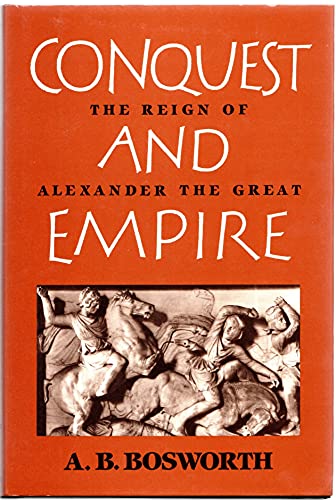
ZJ: There are some claims that his army resented how he honoured the conquered people, particularly the Persians. Macedonian officers were not happy to obey his orders to intermarry with the conquered Persians. We read that his own people were afraid of his unstable moods, and lacked trust in him. What do you think: why did his army become bitter?
CSB: Alexander's choices were understood as an abandonment of traditional Macedonian customs, a form of contempt for his father Philip, to whom many of Alexander's generals had been friends and companions, a kind of moral degeneracy that also expressed itself in a lack of self-control and extreme suspiciousness. Those suspected of organising conspiracies, such as Philotas, son of the great general Parmenion, who had grown up with Alexander, and Callisthenes, grandson of Aristotle, the expedition's official historian, were treated with great cruelty.
ZJ: Why was Alexander so impressed by Porus’s reply that he deserved "treatment like a king?"
CSB: Our sources say that Alexander was impressed by the strenuous defence that Porus' elephant made of his master, preventing him from being captured or killed. Alexander loved animals and had, as is known, a very close relationship with his horse Bucephalus. The affair moved him and induced him to visit the wounded Porus. When he told Alexander that he felt he deserved to be treated like a king, Alexander renounced all revenge and appointed Porus satrap of the Indian territories. This is not surprising: Alexander admired those who maintained pride in their role even in difficult situations; moreover, he believed that a king should deserve respect, so much so that he had Bessus, the murderer of King Darius III, killed.
Alexander in the Indus Delta
ZJ: Is there any possibility that the present-day Bhanbhore site corresponds to Barbarikon, Barce and Daybul in the ancient sources?
CSB: Yes, it is possible, although so far it is not rigorously demonstrable and the hypotheses of moderns are very diverse. Many difficulties arise from the change in the layout of the delta and the difficulty of locating all these sites with certainty. In my opinion, that Bhanbhore is to be identified with Barbarikon is to be considered, in the present state of research, highly probable.
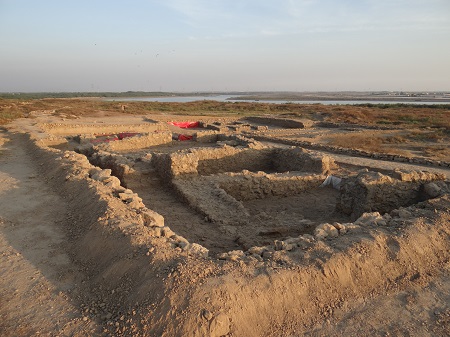
ZJ: And what about Alexander’s harbour?
CSB: My belief is that Bhanbhore can be identified with the port of Alexander, founded by Nearchus during his descent to the ocean along the western arm of the Indus. The analysis of the route probably followed by Nearchus, based on Arrian's account in the Indika, which is based on the testimony of Nearchus himself, seems to lead in this direction. However, again not all modern scholars agree: some even believe that Nearchus went down the eastern arm, but this seems unlikely to me. A confirmation can only come from the continuation of the excavations.
Alexander’s Legacy
ZJ: Why is it that his war machine failed to keep intact the empire, and eventually his generals divided it among themselves?
CSB: Alexander's empire suddenly found itself without its king and without a designated heir. This brought his generals to the forefront: some of them, like Perdiccas, were legitimists and intended to defend the Argaead dynasty, represented by Alexander's half-brother Philip Arrhidaeus and the unborn son of Alexander's wife Roxane. Others, convinced of the impossibility of maintaining the unity of a huge kingdom, preferred to carve out their own space, such as Seleucus in Babylon and Ptolemy in Egypt. The tension between centripetal and centrifugal tendencies continued until 281, when the three great kingdoms, Egypt, Syria and Macedonia, stabilised.
ZJ: What was the fundamental nature of Alexander’s conquest: was it political, economic, military or did he intend to spread the Greek culture in Asia?
CSB: All these aspects must be considered. The end of the Persian Empire was a great political success and opened up access to the enormous riches of the Achaemenids to the Greco-Macedonians; it also consecrated their military superiority, which had always been believed in Greece. But Alexander's sensitivity to Greek culture was very strong and it cannot be excluded that he was interested in spreading it. On the other hand, one must avoid presenting Alexander as a kind of ecumenical visionary, who pursued the unification of mankind, as has been done.
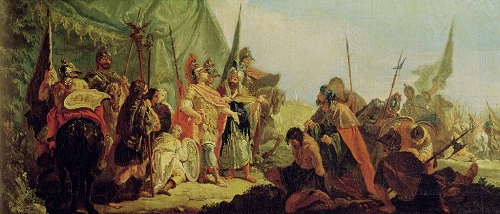
ZJ: What is Alexander’s legacy, and its relevance in the present era?
CSB: Alexander is still a much-discussed personality. The conqueror Alexander, driven by the desire for knowledge and builder of a universal and multi-ethnic empire, capable of overcoming the traditional closure of the Greek polis, is contrasted by the Alexander who was intolerant of any limits imposed on his will, sensitive to autocratic forms of power and to the cult of personality. Undoubtedly Alexander was far less sensitive than his father Philip to the values of the Greek world, whose culture he appreciated, but without profoundly sharing its political values. Thus, the 'romantic' image of Alexander, eager to reach, in his eagerness for knowledge and conquest, the frontiers of the known world, has traversed the centuries and left a great impression in later culture up to the modern age, in the West and in the East.
ZJ: Which books would you recommend on Alexander?
CSB: The bibliography on Alexander is endless and not easy to select. I suggest, for their strictly scientific character and, at the same time, their high dissemination capacity, the following books: A.B. Bosworth, Conquest and Empire: The Reign of Alexander the Great, 1995; R. Lane Fox, Alexander the Great, 1999; P. Briant, The First European: A History of Alexander in the Age of Empire, 2017.

